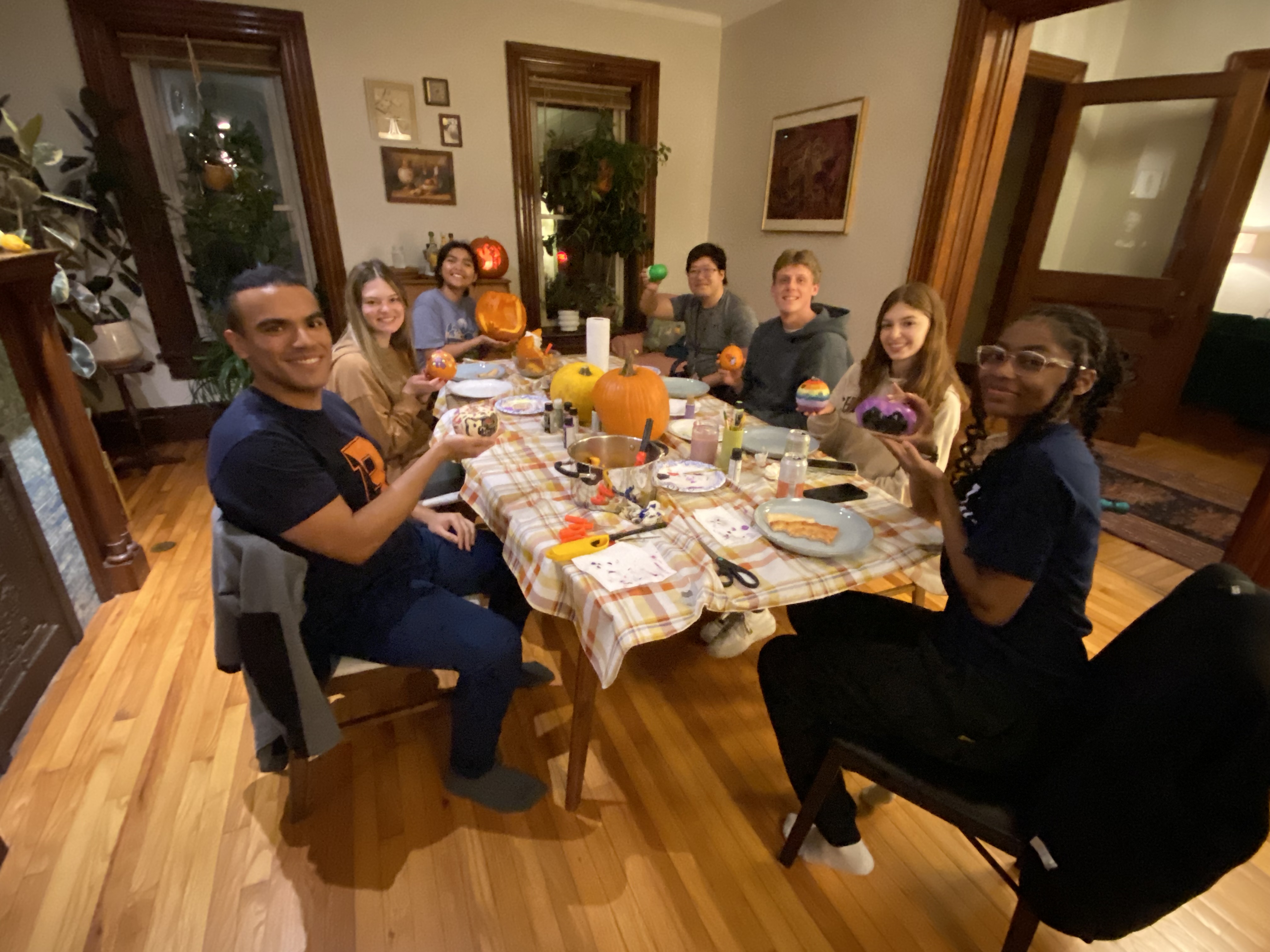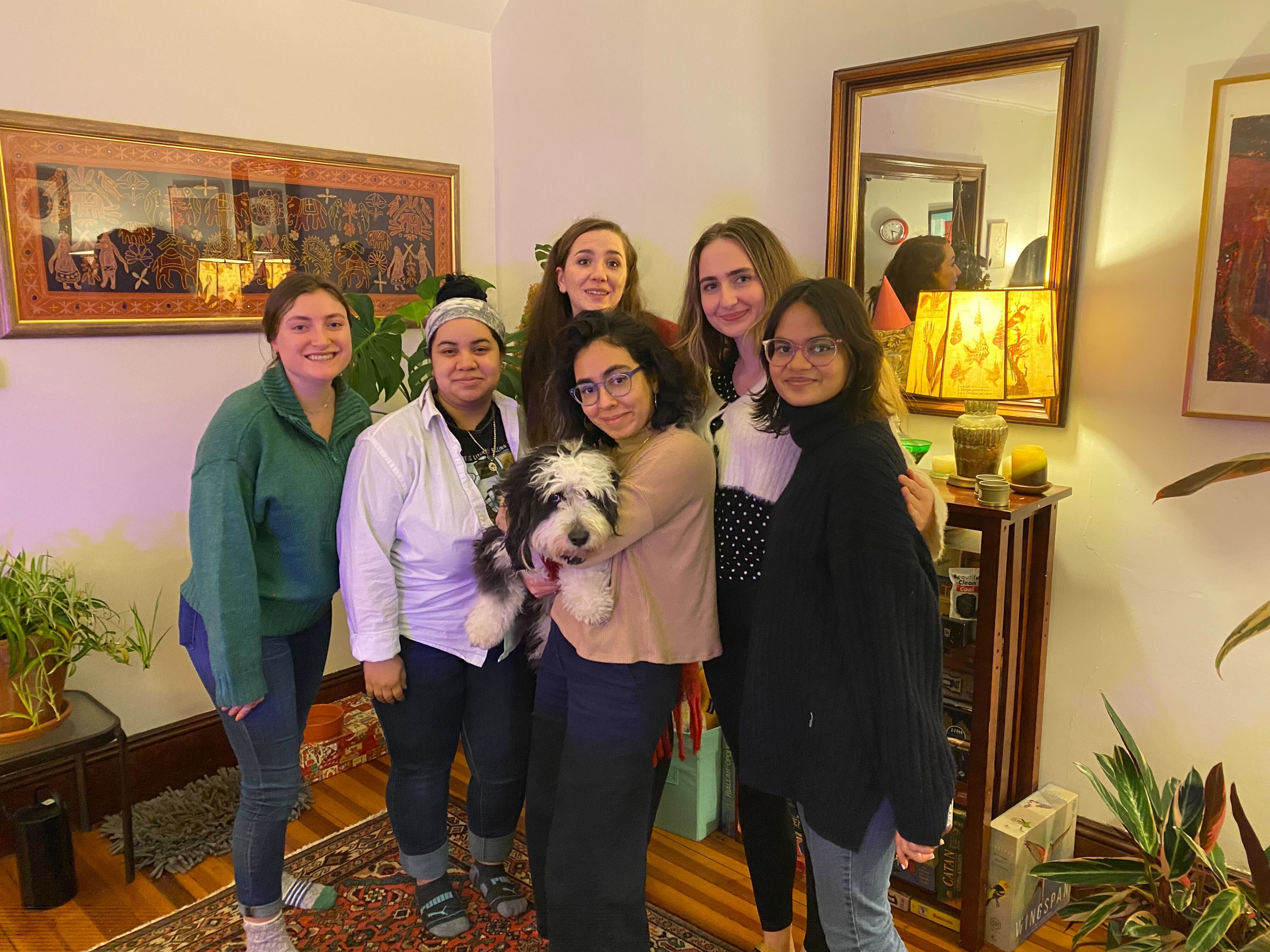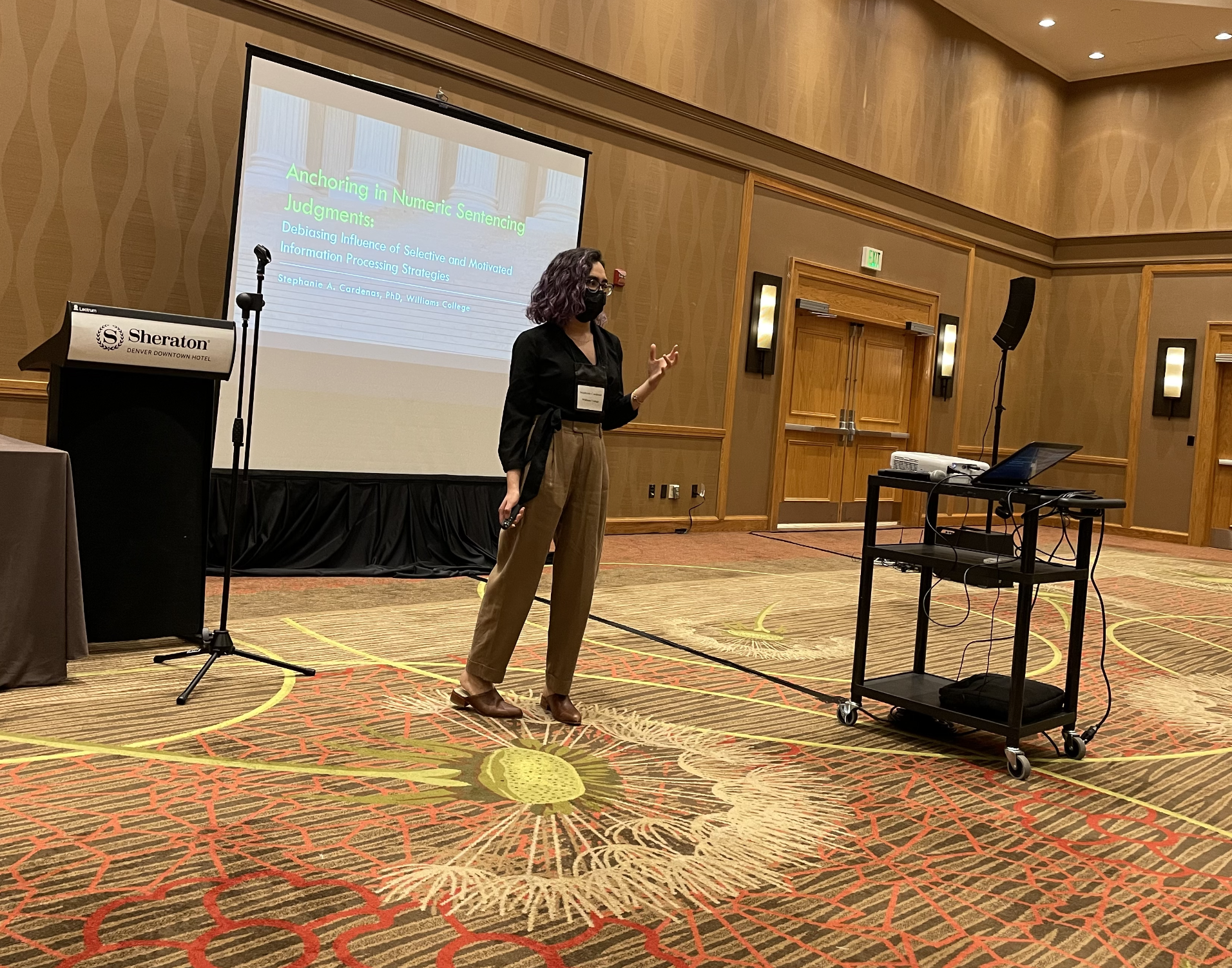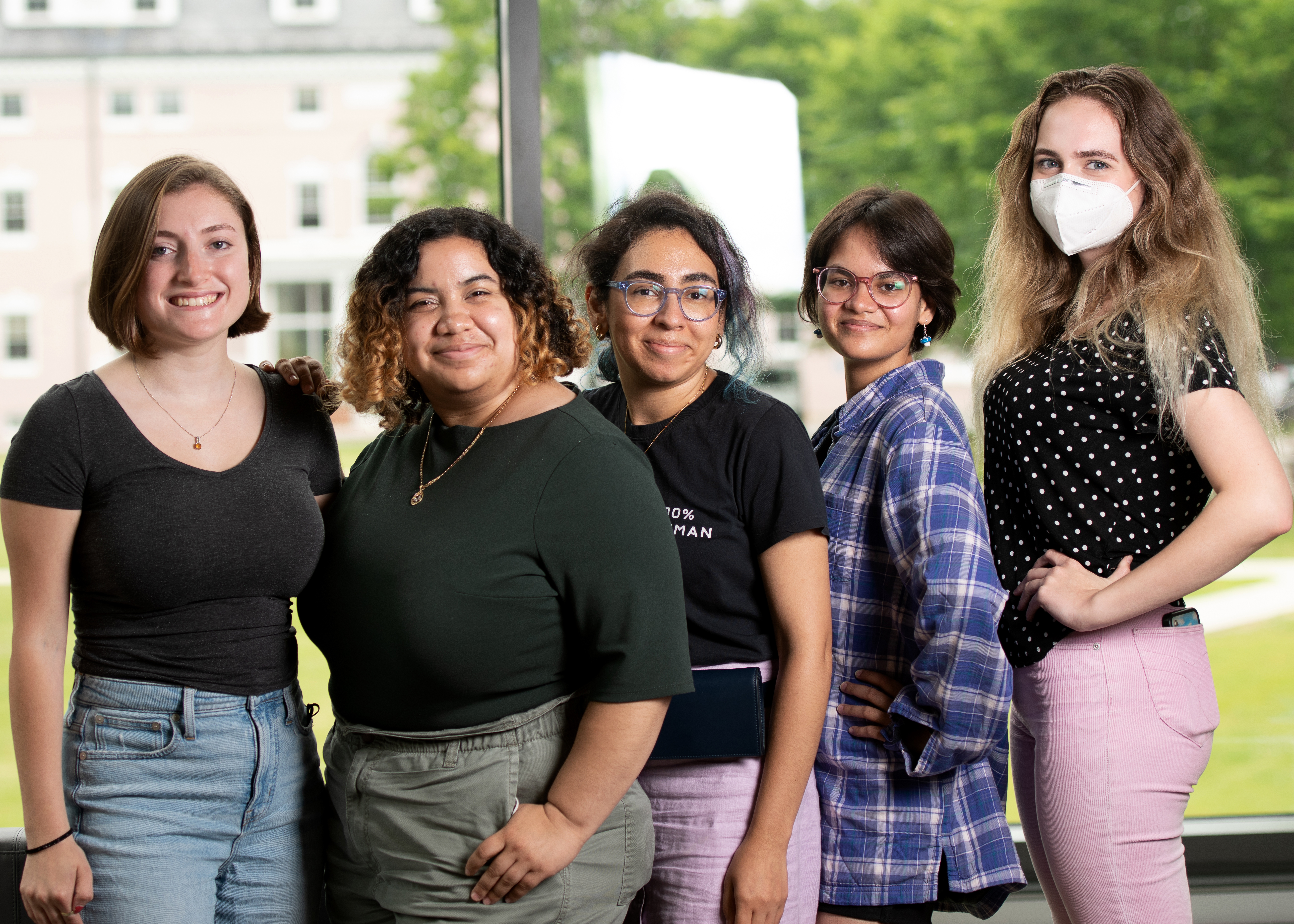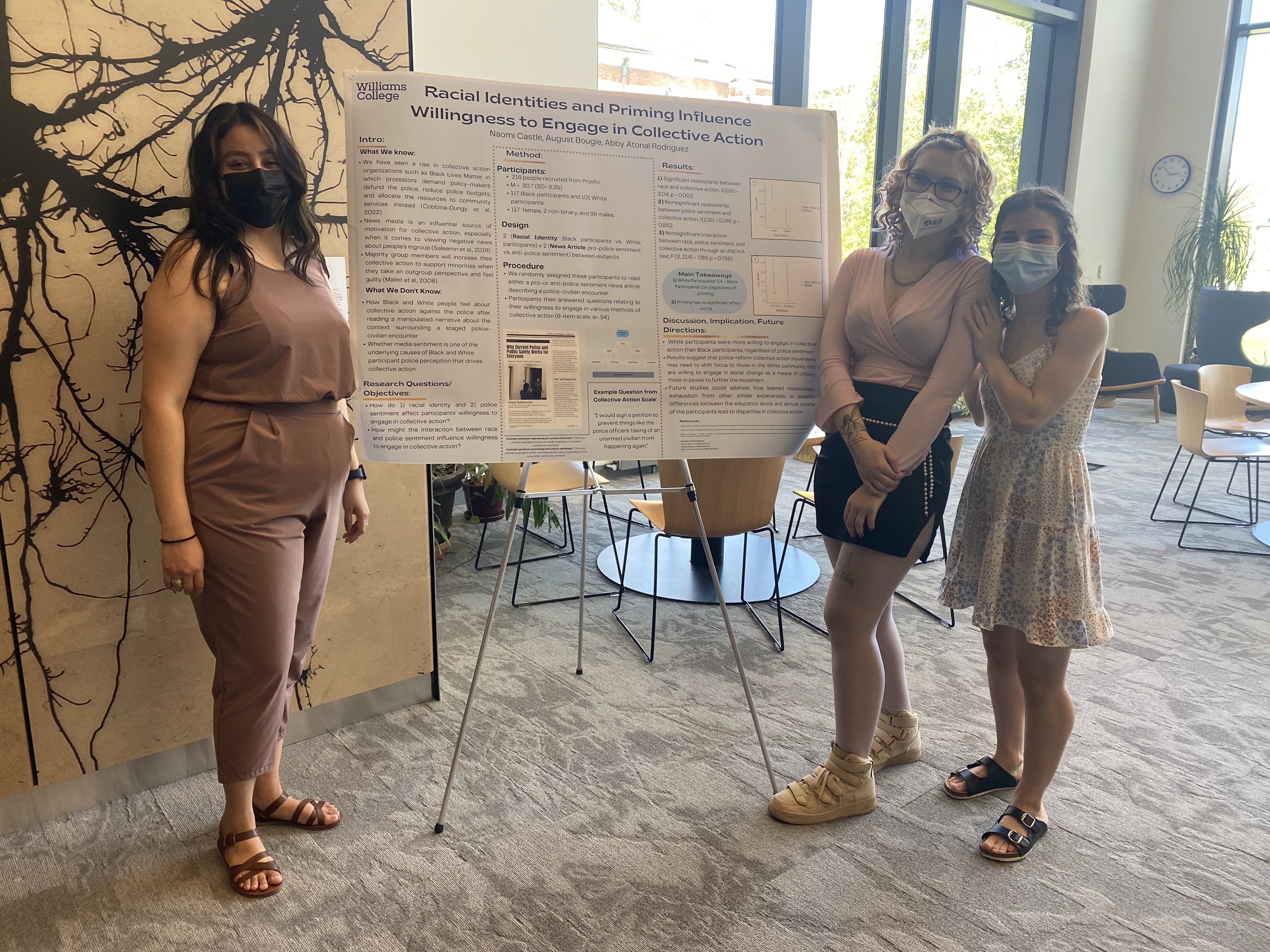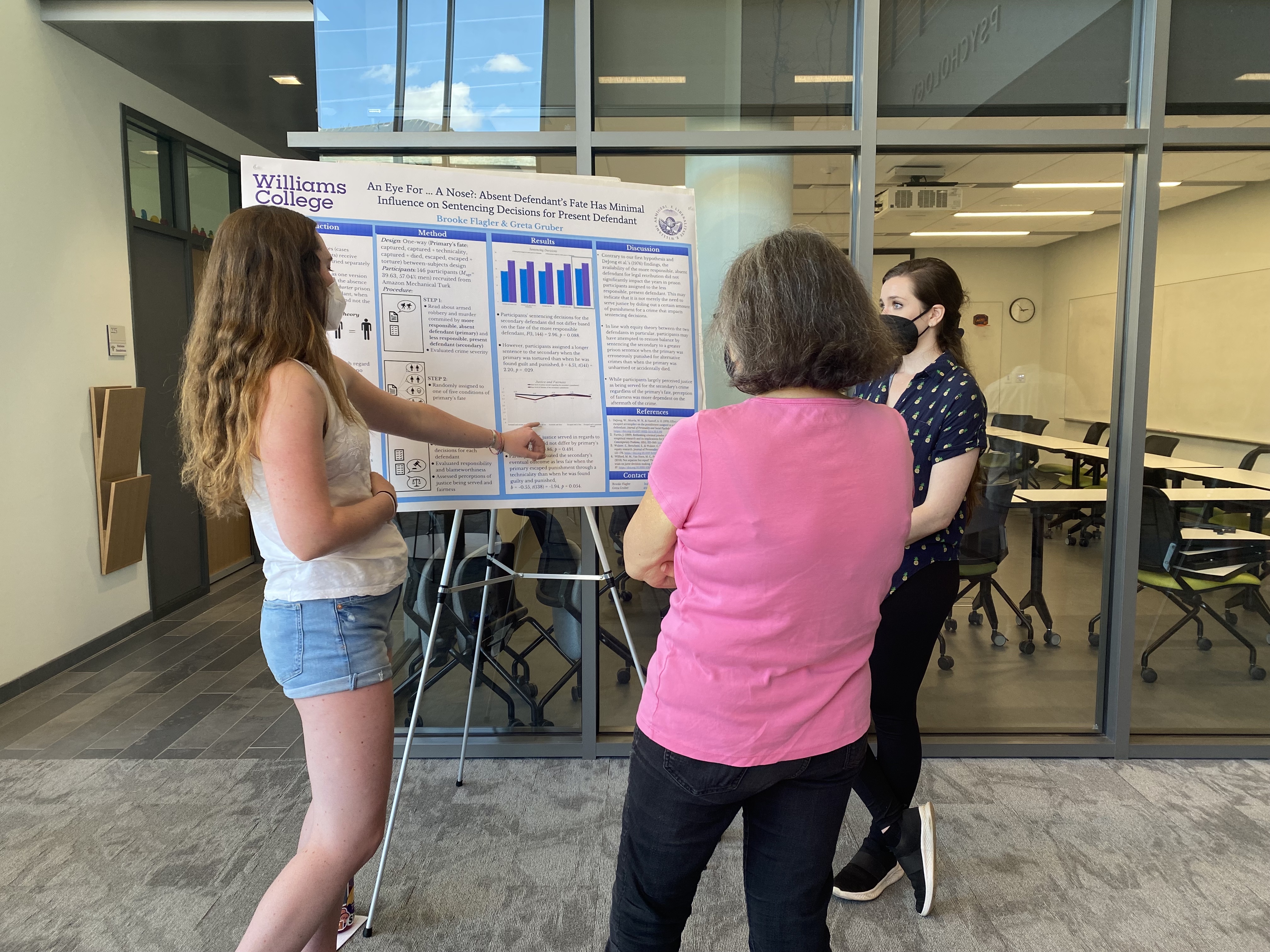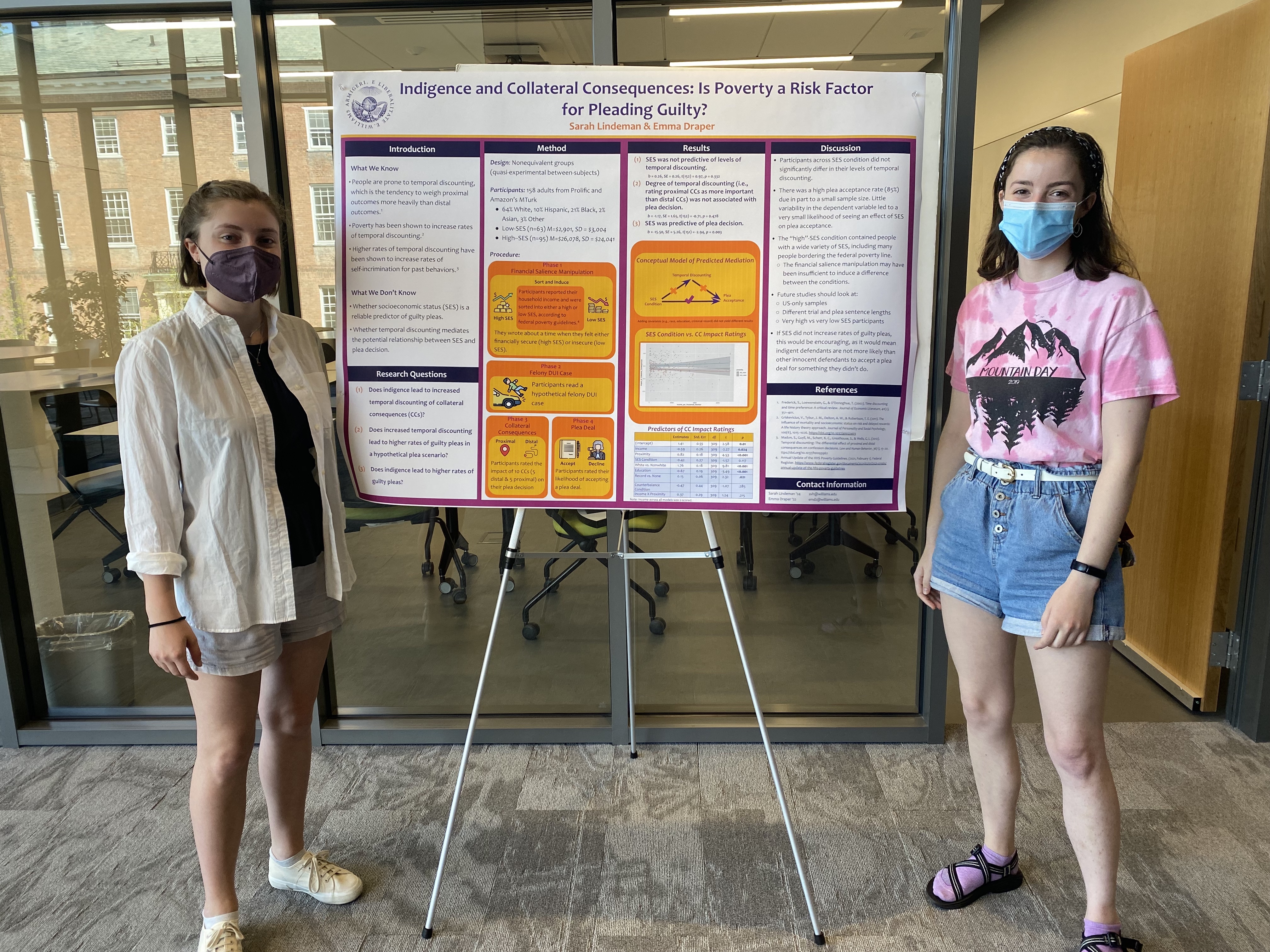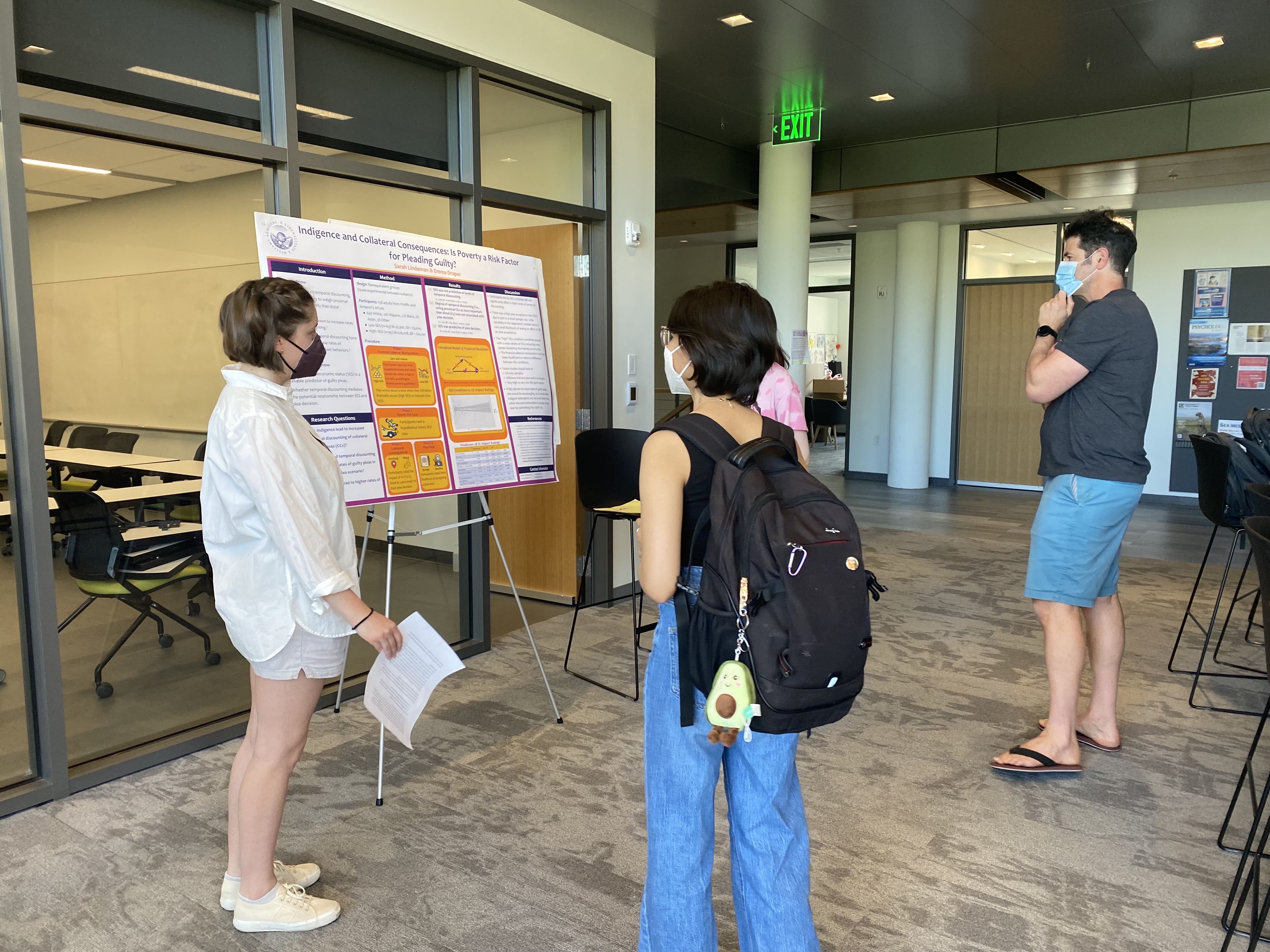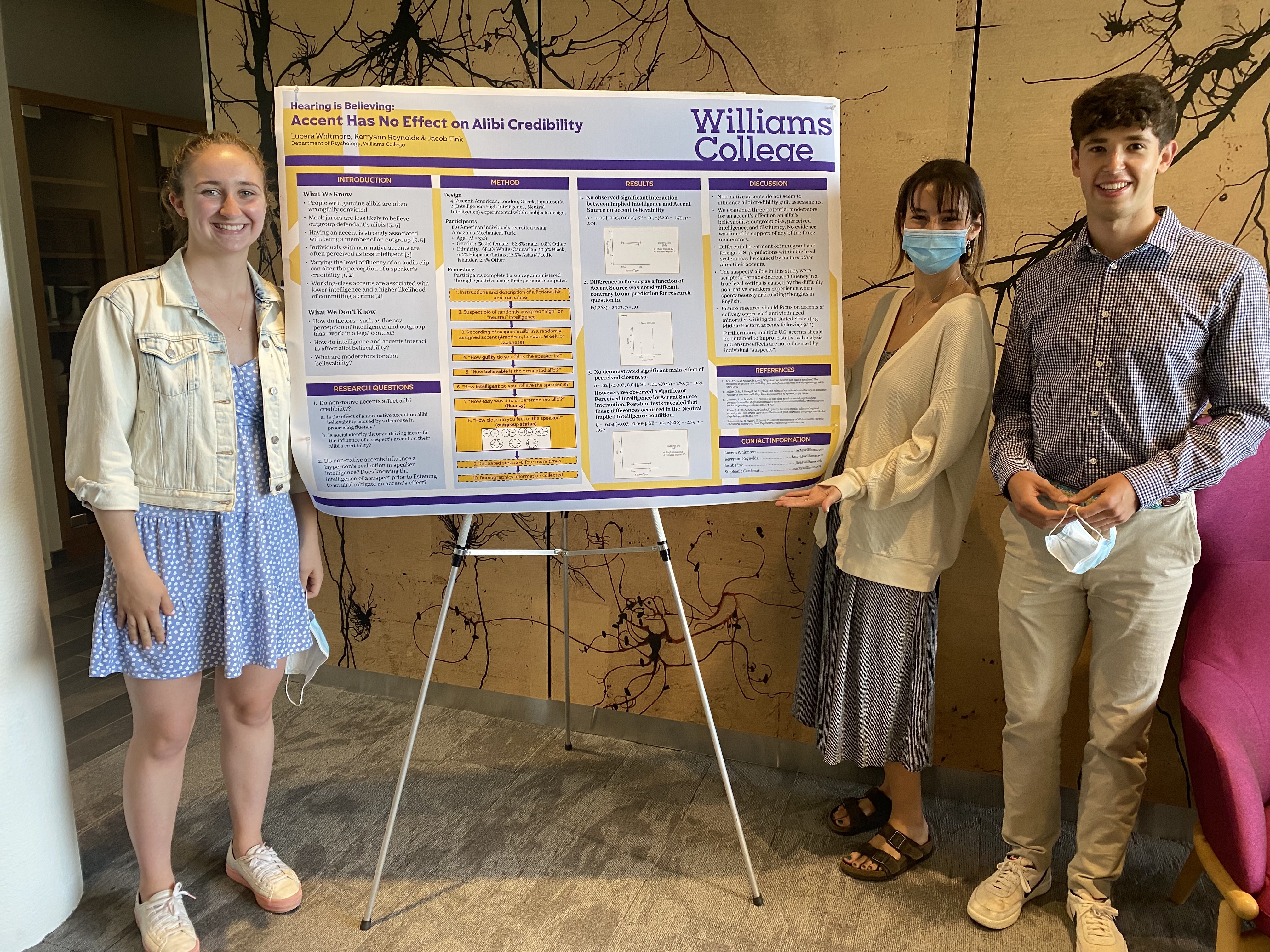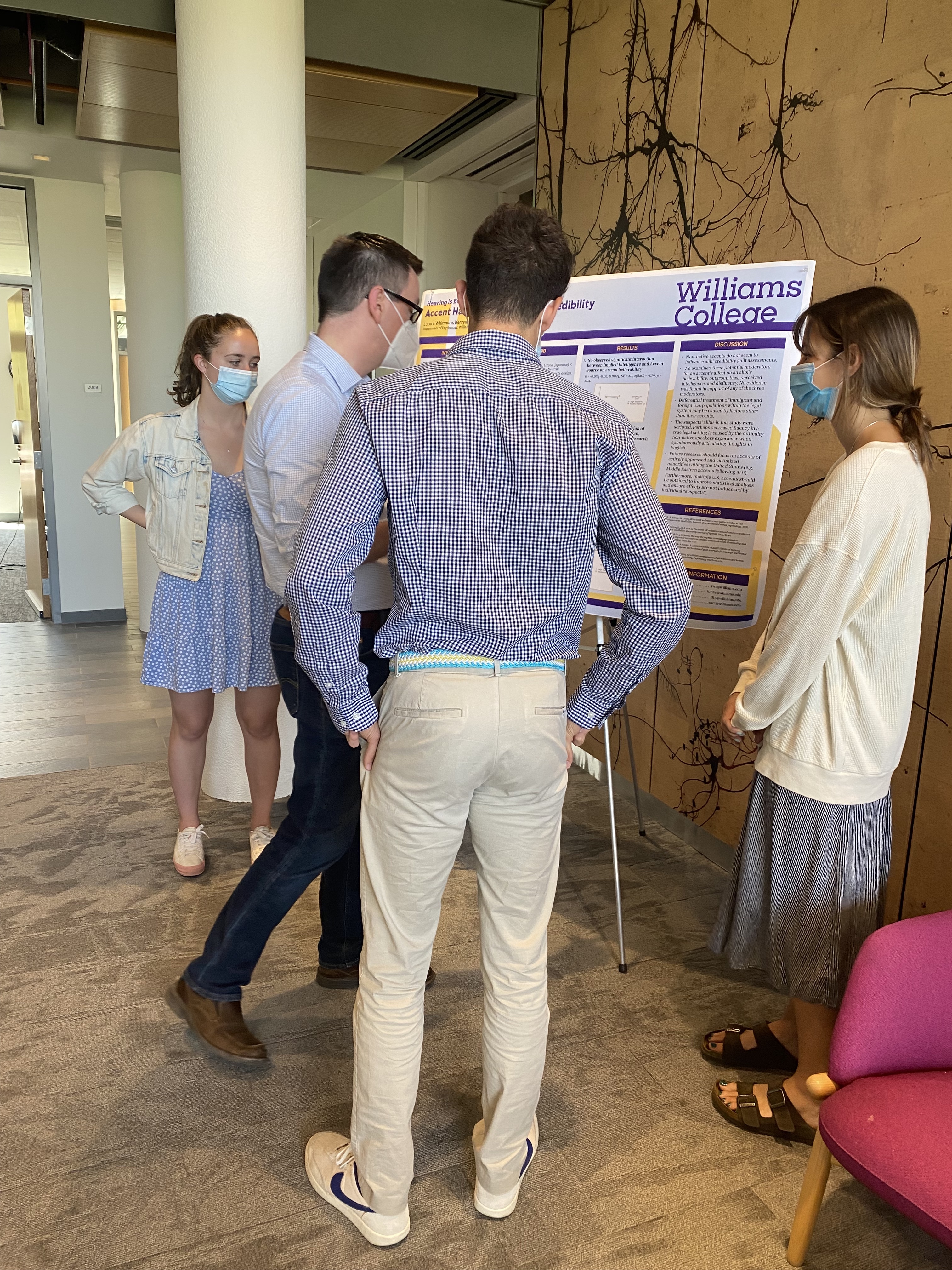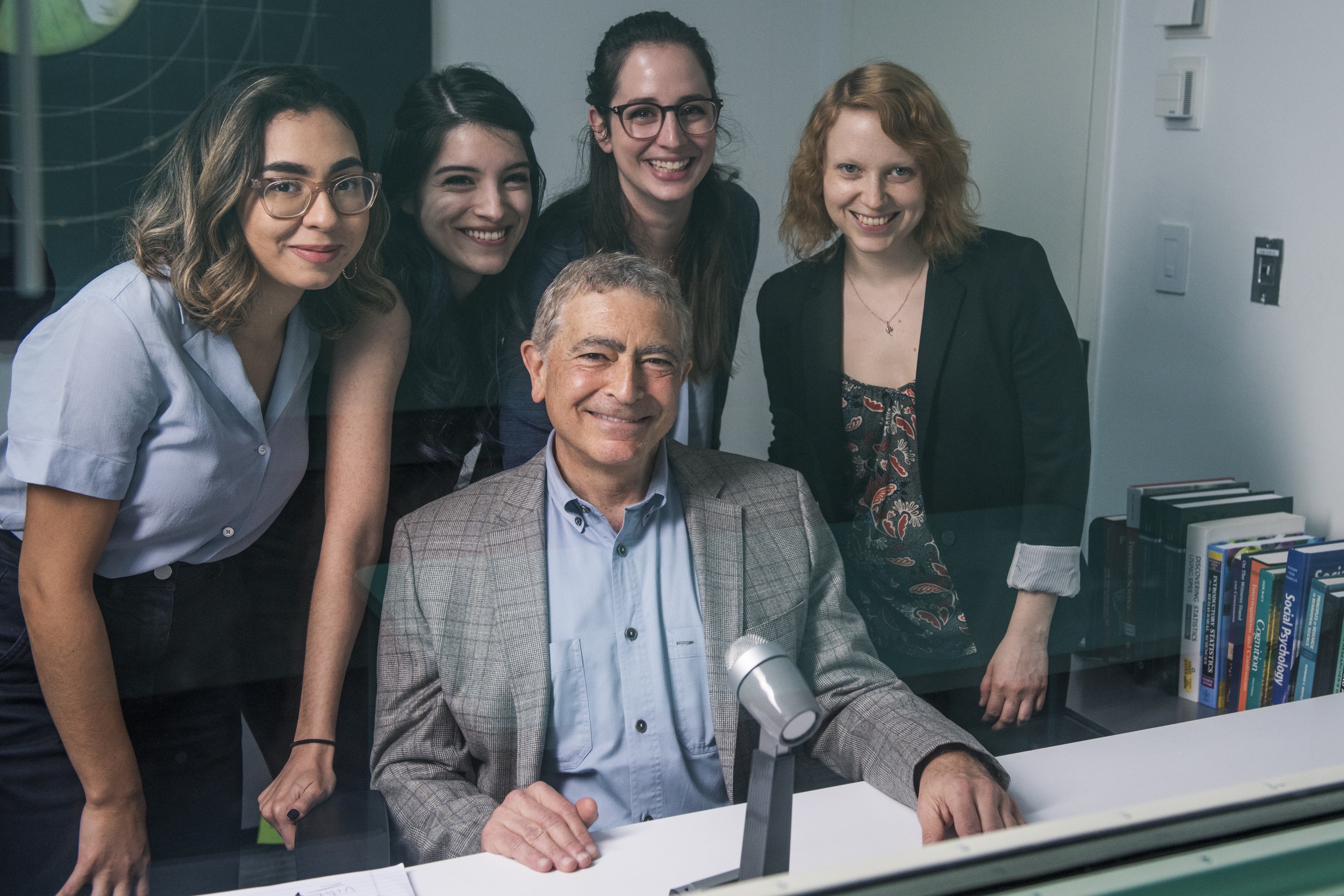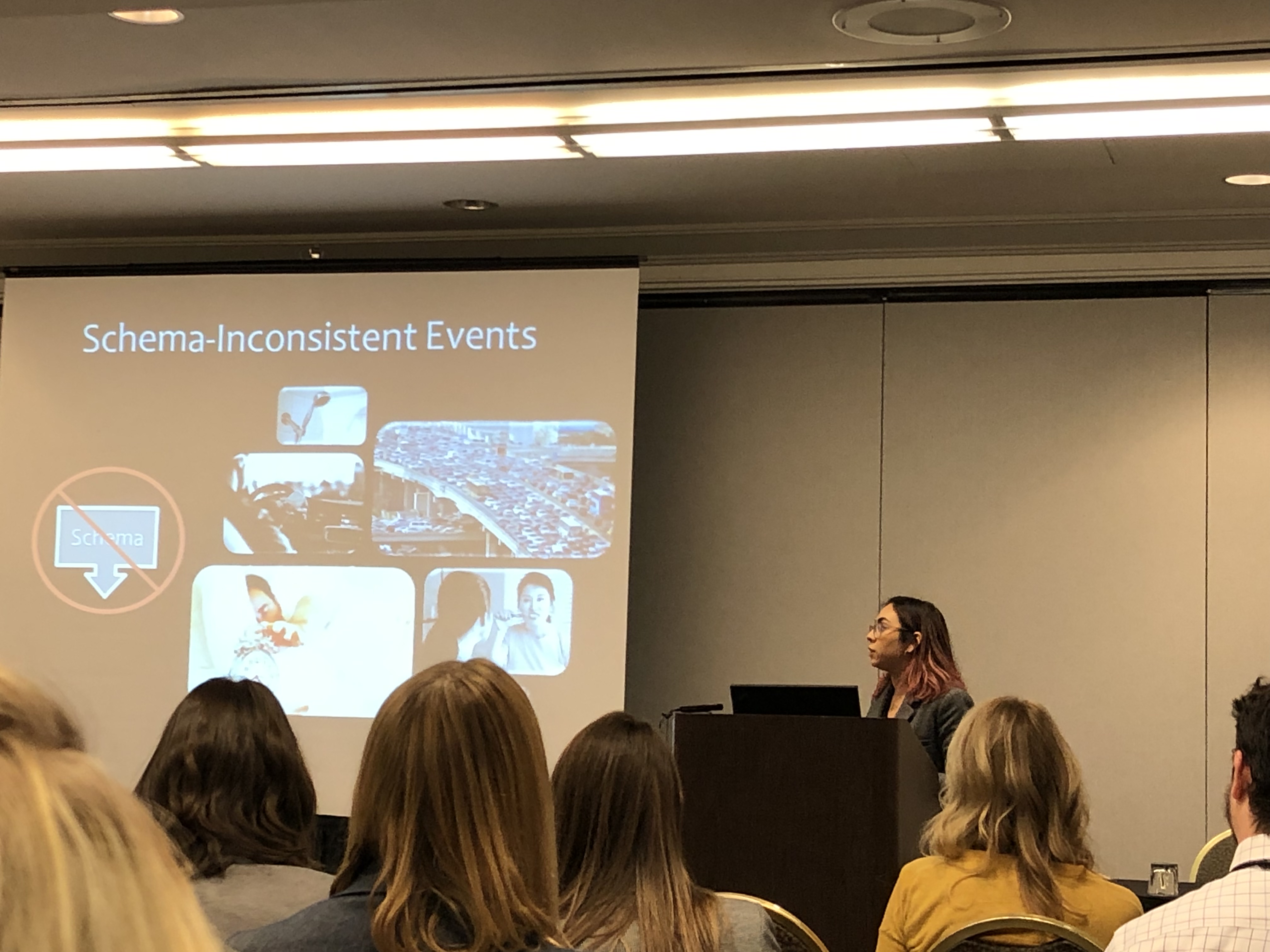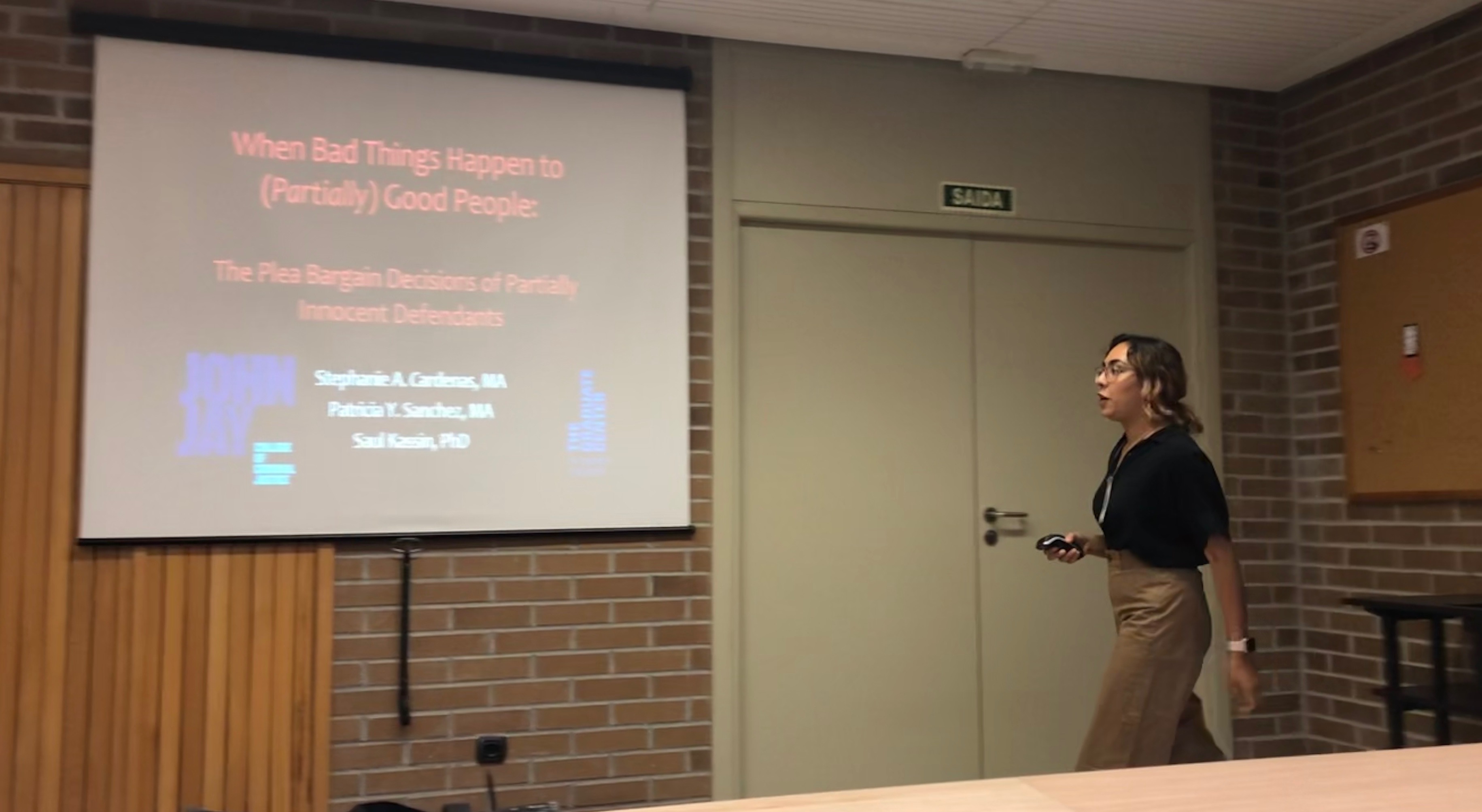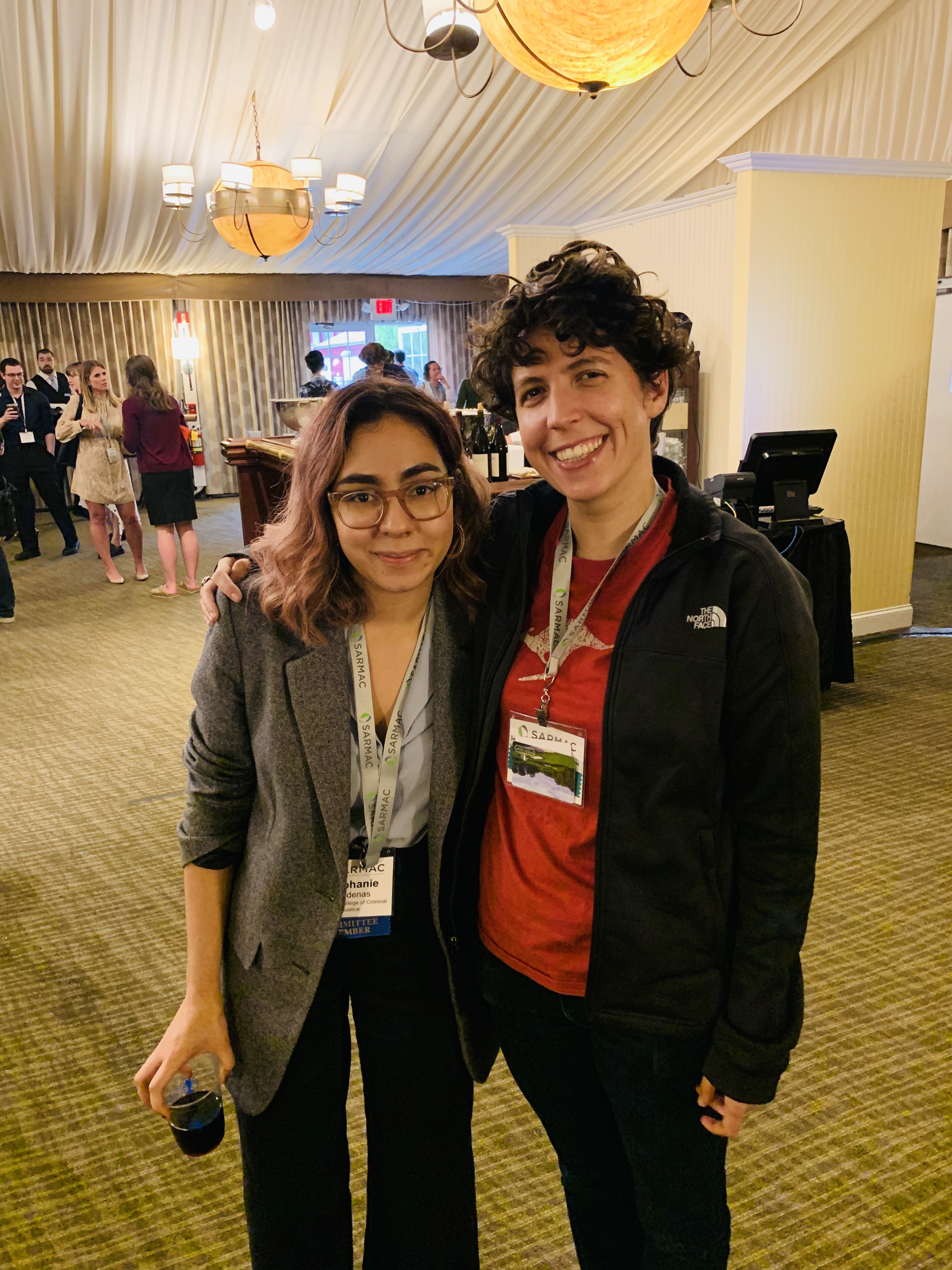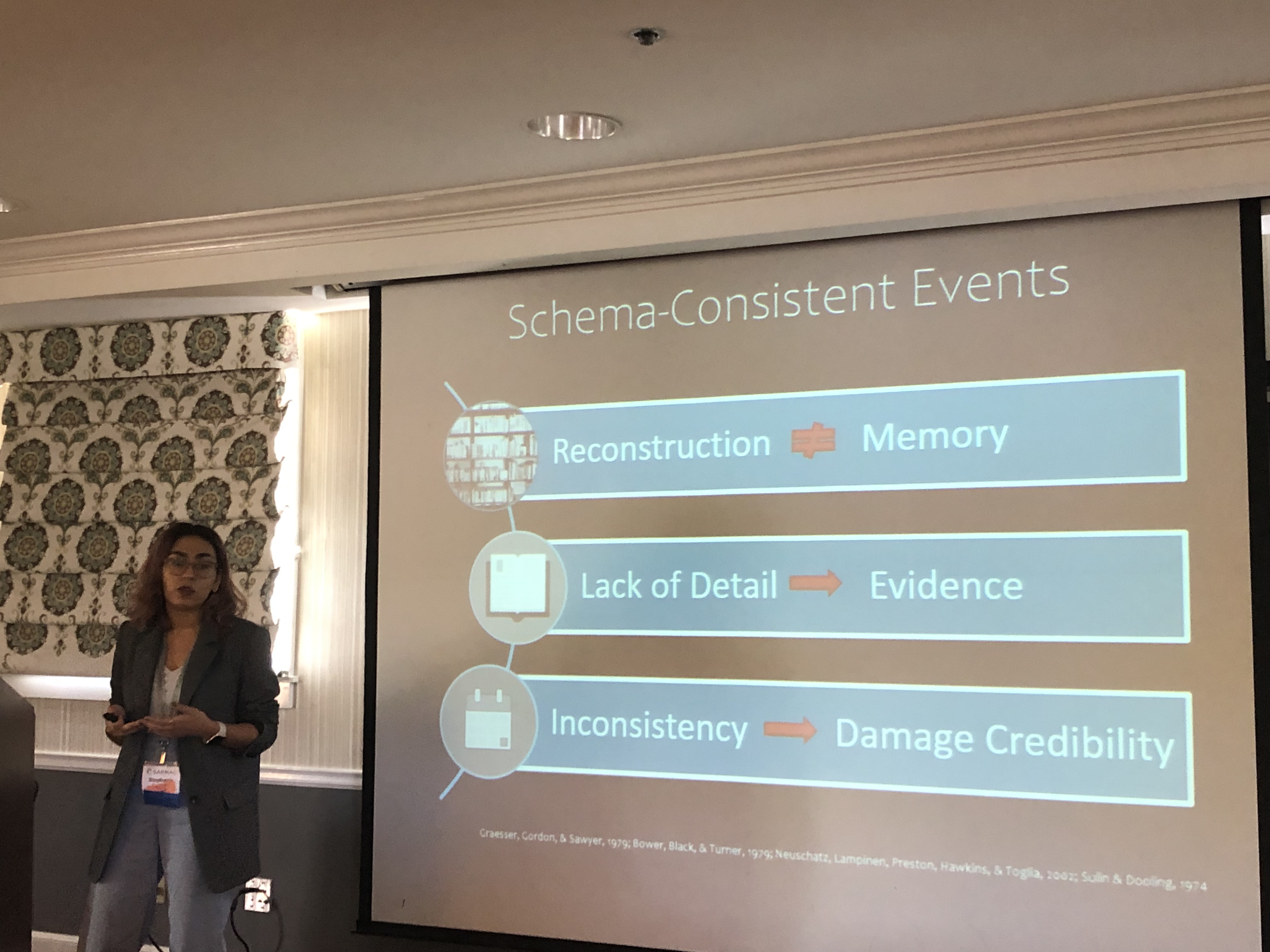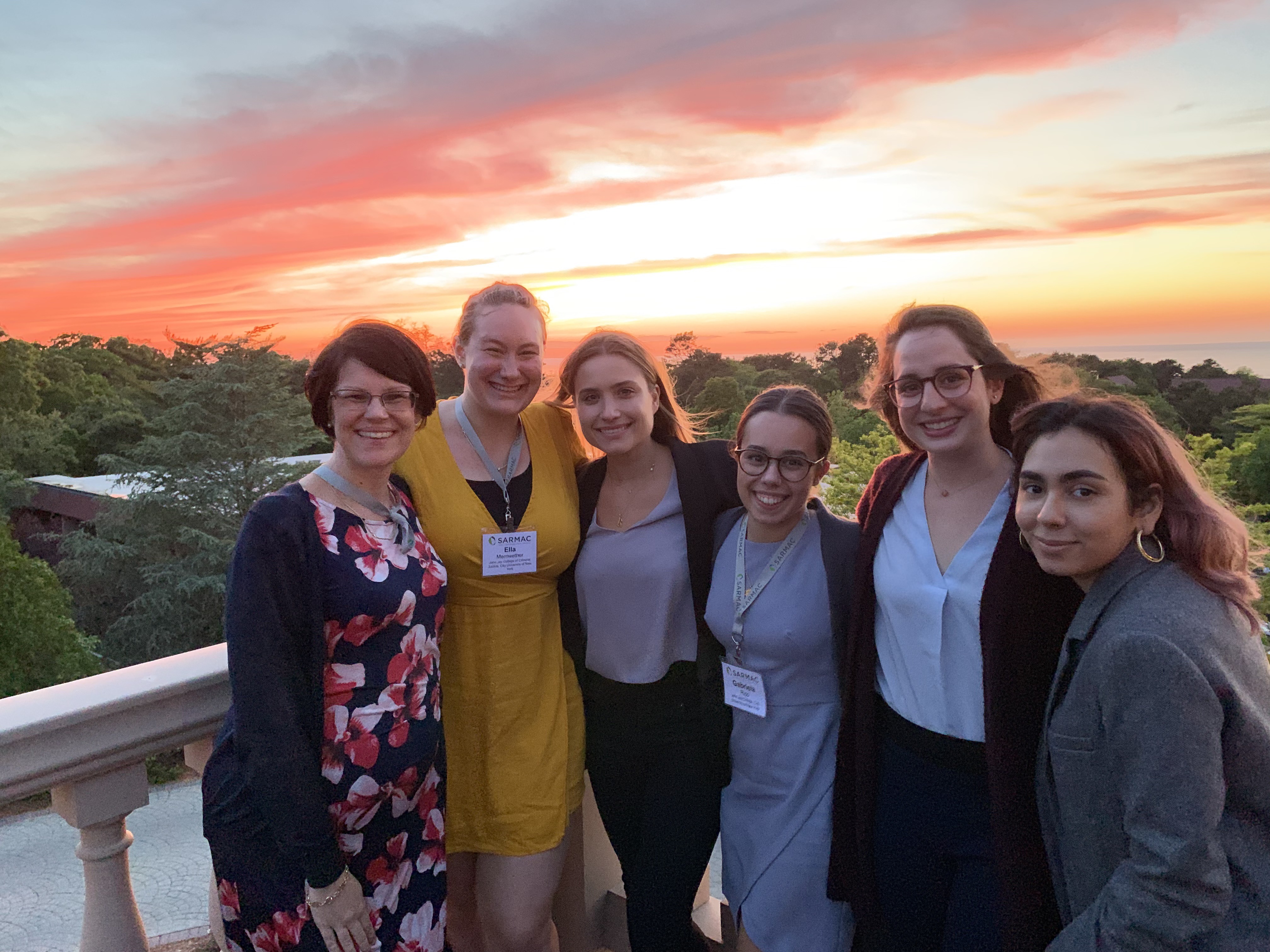stephanie aurora cardenas
Hi there! I am an Assistant Professor and a C. Graydon and Mary E. Rogers Faculty Fellow at Bucknell University. Before that I was a Visiting Assistant Professor at Williams College and a National Science Foundation Graduate Research Fellow. I earned my PhD in Psychology from John Jay College of Criminal Justice/The Graduate Center, CUNY. My research examines the social-cognitive dimensions of judgments and decision-making in contemporary justice areas such as alibi evaluations, plea bargains, and police-civilian altercations.
Research
Police, prosecutors, judges, and juries make assumptions about how people think and behave that are not always consistent with psychological science. Legal judgments based on erroneous assumptions undermine the fair administration of justice, foment racial and socioeconomic inequalities, and lead to wrongful convictions. To challenge these assumptions, I have generated several lines of research examining the influence of psychological biases on legal judgments:
How can we improve alibi memories and how these are perceived?
How do defendants and their attorneys make plea decisions?
What factors influence how laypeople interpret police use of force?
What is the relationship between emotions and false memories?
At John Jay, I was advised by Saul Kassin and Deryn Strange. I also collaborate with Emily Balcetis, Kristyn Jones, William Crozier, and Yael Granot.
Scroll down for more information.
Plea Bargain Decision-Making
"...criminal justice today is for the most part a system of pleas, not a system of trials.”
Currently, 95% of all criminal cases in the U.S. are resolved via guilty pleas, not trials. My work is interested in the structural issues and psychological biases that influence judges and prosecutors involved in the construction of plea offers and defendants and attorneys who must decide to accept or reject those offers. Using both a high-stakes experimental laboratory paradigm and immersive plea simulations, we examine how beliefs about deservingness and feelings of guilt correlate with a willingness of defendants to take responsibility for wrongdoings not committed. We also examine how socio-economic status and cognitive biases, including anchoring and adjustment failures and temporal discounting, inform consideration of distal versus proximal collateral conseequences and willingness to plead guilty. Finally, we investigate how federal and state judges evaluate the ethicality of various acts of prosecutorial discretion, such as overcharging to elicit guilty pleas, providing time-limited plea offers, and requiring plea waivers.
Selected work
- Cardenas, S.A. Sanchez, P.Y., & Kassin, S.M. (2023). The "Partial Innocence" Effect: False Guilty Pleas to Partially Unethical behaviors. Personality and Social Psychology Bulletin. doi.org/10.1177/01461672231185639 Open Access Version
- Cardenas, S.A. (2023). Charged Up and Anchored Down: A Test of Two Pathways to Judgmental and Decisional Anchoring Biases in Plea Negotiations. Psychology, Public Policy, and Law. Advanced Online Publication. doi.org/10.1037/law0000390 Open Access Version
- Cardenas, S.A. (2021). The Influence of Prosecutorial Overcharging on Defendant and Defense Attorney Plea Decision Making: Documenting and Debiasing the Anchoring Effect. Dissertation Submitted in Partial Fulfillment of the Doctoral Degree at the Graduate Center, CUNY. academicworks.cuny.edu/gc_etds/4607
- Kassin, S.M., Cardenas, S.A., Meterko, V., & Barksdale, F. (2023). Prosecutorial Misconduct: Assessment of Perspectives from the Bench. Court Review. osf.io/cdvbh
- Cardenas, S.A. Lindeman, S. & Draper, E.M. (in prep). Impoverished Cognition? Examining the Direct and Indirect Influences of Poverty on Guilty Pleas.
Alibi Generation and Evaluation
"There’s nothing tangible I can do to remember the day. There’s nothing I can do to make me remember."
Some suspects, like Adnan Syed, cannot recall their alibis. Others, like Eric Blackmon, not only recall their alibis, but also produce various witnesses that the state or their own legal counsel either fail to investigate or judge to be noncredible. The inability to provide an alibi—let alone a compelling one—contributes to wrongful convictions (Wells et al., 1998). Because an alibi defense can exonerate an innocent suspect, it is critical that we understand why alibi providers fail to recall their whereabouts, what law enforcement can do to improve recall, and what factors diminish the credibility of alibis. For example, what mnemonic tools are available for improving alibi generation of innocent suspects? What metacognitive cues distinguish the alibis of innocent and guilty people? How does a presumption of guilt influence how people judge the believability of an alibi and whether an alibi is investigated? How might a violated expectation of consistency — between an alibi provider's stereotyped identity and their stereotype-inconsistent alibi — influence how law enforcement interpret the case facts?
Selected work
- Cardenas, S.A., Crozier, W.E., & Strange, D. (2020). Right Place, Wrong Time: The Limitations of Mental Reinstatement of Context on Alibi-Elicitation. Psychology, Crime, and Law. doi.org/10.1080/1068316X.2020.1798424
- Cardenas, S.A., Crozier, W.E., & Strange, D. (2022) The Effect of Erronenous Alibis. In M. Kienzle & J. Behl (Eds.) Alibis and Corroborators: Psychological, Criminological, and Legal Perspectives. New York, NY: Springer. doi.org/10.1007/978-3-030-95663-9_9
- Cardenas, S.A. (2018). Improving Alibi Generation by Asking the Right Questions and Visualizing the Right Responses. Master's Thesis submitted for the John Jay College of Criminal Justice Doctoral Program in Psychology milestone.
- Crozier, W.E., Cardenas, S.A., & Strange, D. (2019) Beyond Believability: Observer's Credibility and Memory Quality Ratings for Mock Crime Alibis. Paper presented at SARMAC, Cape Cod, MA.
Police Use of Force Incidents
In the wake of protests over fatal police shootings of unarmed Black men, our work examines why people come to such disparate conclusions when watching recorded police-civilian encounters. Excitingly, this line of research is in its early stages. We are investigating the motivated processes by which individuals misperceive distances when viewing video evidence depicting police-civilian altercations and demonstrate the consequences for threat appraisals, justifiability determinations, and punishment decisions. This work challenges the assumed objectivity of police footage and its appropriateness for rendering judgments over the justifiability of police use-of-force incidents.
Selected work
- Cardenas, S.A., Jones, K.A., Granot. Y., & Balcetis, E. (in prep). Within Striking Distance: Appraisals of Civilian Threat Bias Distance and Formidability Perceptions in Recorded Police Use of Force Incidents.
- Cardenas, S.A., Jones, K.A., Granot. Y., Stoker, K., & Balcetis, E. (2022). Motivated Distance Perception: The Effect of Threat and Identification with the Police on Perceived Proximity in Recorded Police-Civilian Altercation. Paper presented remotely in symposium “Effects of Perceptions of Force on Legal Legitimacy and Decision-Making” at the 2022 Annual Global Meeting on Law & Society Association (CRN 54 Law, Society, and Psychological Science),Lisbon, Portugal.
- Jones, K.A., Cardenas, S.A., Balcetis, E., & Granot. Y. (2019). We're on the Same Team, So I know Where You Stand: Vicarious Threat Biases Distance Perception. Paper presented in symposium, “Emerging issues: Body-worn cameras elicit cognitive concerns” at the Meeting of the Society for Applied Research in Memory and Cognition (SARMAC), Cape Cod, MA.
Emotions and False Memories
How do our emotions and how we expect to feel influence what we remember? We investigated how emotional evidence presented at trial influences the emotions that jurorsf feel toward the victim and defendant, as well as their memories for the trial facts and their verdict decisions. In other work, we examined how an interventions, based on implementation intentions and guided expectations, influence how people remember lab-based analogue traumatic memories and their analogue ptsd symptoms. Both lines of research formed the basis for two Master's students theses, Auset Alexander, and Karina Patel (at NYU). I am excited to continue to develop both of these lines of research with future students!
Selected work
- Cardenas, S.A., Alexander, A., & Strange, D. (in prep). Life or Death in Plain Sight: The Role of Emotional Evidence on Juror Emotions, Decision-Making & Memory. Poster presented at the American Psychology-Law Society Conference, Portland, OR. osf.io/4pksz
- Cardenas, S.A., Patel, K., & Strange. D. (in prep). Expectations of social support decrease immediate negative affective response and amplification of false traumatic memories.
Teaching & Mentorship
“...It is fuel, and the absence of the fuel
together, that make fire possible.
We only need to lay a log
lightly from time to time.
A fire
grows
simply because the space is there,
with openings
in which the flame
that knows just how it wants to burn
can find its way."
My teaching and mentorship goals are to empower students to become critical thinkers and agents of their own learning in an environment that is compassionate and enables them to thrive. To that end, I apply evidence-based principles of how students learn best to ensure that students leave my courses more confident, knowledgeable, and conscientious peers than they were before. As Yi-Chen Wu '22 — a past student, research assistant, and co-valedictorian — put it, “...you don’t have to step out of your comfort zone, you just have to expand it.”
Instructor of record
-
PSYC 402: Blessings and Blunders of Human Memory, Williams College
Fall 2022
Student-led seminar course (12 students) [Syllabus]
-
PSYC 404: Bias & Discrimination: Sources and Consequences, Williams College
Fall 2021
Student-led seminar course (14 students) [Syllabus]
-
PSYC 101: Introductory Psychology, Williams College
Fall 2021, Spring 2022, Fall 2022, Spring 2023
Team-taught lecture course with a lab (170+ students) [Lab]
-
PSYC 349: Psychology and Law, Williams College
Spring 2022, Spring 2023
Seminar course with empirical lab component (8-10 students) [Syllabus]
-
PSYC 200: Cognitive Psychology, John Jay College of Criminal Justice
Fall 2020
Lecture course (36 students) [Syllabus]
-
PSYC 221: Social Psychology, John Jay College of Criminal Justice
Fall 2019
Team-taught lecture course (two sections: 35 students, 37 students)
-
PSYC 311: Research Methods in Psychology, John Jay College of Criminal Justice
Summer 2019
Team-taught lecture course with empirical lab component (13 students)
Other selected teaching positions
-
PSYC 311 Research Methods in Psychology, John Jay College of Criminal Justice
Fall 2018, Spring 2019, Fall 2019, Spring 2020
Laboratory Instructor. Designed and taught the lab section (1.5 hours per week) of a larger course.
-
PSYC 200 Cognitive Psychology, John Jay College of Criminal Justice
Fall 2017, Fall 2020, Spring 2021
Graduate Teaching Assistant.
-
CUNY Teaching and Learning Center, John Jay College of Criminal Justice
Spring 2018
Non-Teaching Adjunct.
Selected research mentorship
- Rosalba Linares (Williams senior thesis): "Do Stereotype-Inconsistent Alibis Bias Evaluations of Alibi Providers and Case Development?"
- Destiny Crisp (Williams senior thesis): "Does A Guilty Presumptive Context Bias Alibi Case Assessment?"
- Brooke Flagler (Williams senior thesis): "Do Incidental Feelings of Guilt Lead to Self-Incrimination?"
- Auset Alexander (John Jay master's thesis co-advisor): "Brace for Impact: The Effect of Victim Impact Evidence on Juror Memory Distortion and Sentencing Decisions in Capital Trials."
- Karina Patel (NYU master's thesis co-advisor): "Effects of Pre-traumatic Stress Reactions and Social Support on Adult PTSD Symptoms."
- Rosalba Linares (Williams independent study): "The Psychology of Partial Innocence"
- Emma Draper (Williams independent study): "Elicitation and Measurement of Emotions"
Open Access Tools for Researchers, Teachers, and Students
This section contains open-access research tools, teaching activties, and NSF GRFP resources I have created (or adapted). Come back soon for more resources as I continue to populate this section!For Researchers
download How-to-Guide for Making Fake News (for science) link to FORRT's replications and reversals databaseFor Teachers
download Class Handout for Social Influence Experiment Link to List of BIPOC-authored Psychology Papers download Activity and Research Report Handout for Lab on Motivated Reasoning download Handout for Activites on Detecting DeceptionFor Students
Link to Free/Low Cost Resources for Students Letter of Recommendation Requests for Past StudentsFor Prospective NSF GRFP Applicants
This section includes my application materials for the National Science Foundation Graduate Research Fellowship Program (NSF GRFP) (awarded in the category of Psychology – Personality and Individual Differences). When I submitted my NSF GRFP application, I was 1.5 years out of college participating in the National Institutes of Health Postbac IRTA program and applying to non-clinical doctoral programs in Social and Cognitive psychology. So, if you're thinking about applying, but worried that your past research experiences (like mine a the time) don't perfectly align with the doctoral degree you're pursuing, I encourage you to apply anyway! Personal Statement, Relevant Background, and Future Goals Graduate Research Statement Reviewer FeedbackAdditional Resources
- Presentation by a program director at the NSF
- Notes from a presentation by a former NSF GRFP reviewer
- Alex Lang’s website has a stellar collection of application materials from students in various disciplines. This website was an invaluable resource to me as an applicant and I recommend any interested students take a look.
Got questions? Feel free to shoot me an email at s.cardenas at bucknell.edu.
Join the Psych and Law Lab @ Bucknell
Current Lab Members
- Riley Chen (‘28)
- Sopheak Thy (‘25)
- Hayley Leopold (‘26)
- Michael Jacobus (’25)
- Emma Keller (‘25)
- Harmony Smith (’27)
- Jean Carlo Picado (‘25)
Alumni Lab Members
-
Bucknell University
Angel Santos (‘24), Nicole Fernandez (’24), Lauren Mirando (‘25), Sarah Policano (’25)
-
Williams College
Sarah Lindeman (‘24), Devika Goel (’24), Emma Draper (‘23), McKenzie Stoker (’23), Sophie Haase (‘24), Rosalba Linares (’23), Brooke Flagler (‘23), Destiny Crisp (’23), Angela Mendieta (‘24)
-
John Jay College of Criminal Justice
Merusha Mukherjee, Janna Jensen, Kristen Akin, Yi-Chen Wu, David Sokol, Marrayah Borcena, Min Jeong Kim, Olivia Winton, Klaudia Zuraw, Nikki Prascak, Jonathan Dixon, Briana Irwin, Simran Sohal, Devon Kaat, Dominique Riviera, Eric Korzun, Elena Christofi, Angelo Luongo, Danielle Strolia, Athena Sher, Lucrezia Rizzeli, Ella Merriwether; Eloise Freitag, Valeria Ramirez, Kimberly Echevarria; Helen Gavrilov, Carissa Stump, Gio Bobadilla, James Gensel, Emily Laubert
